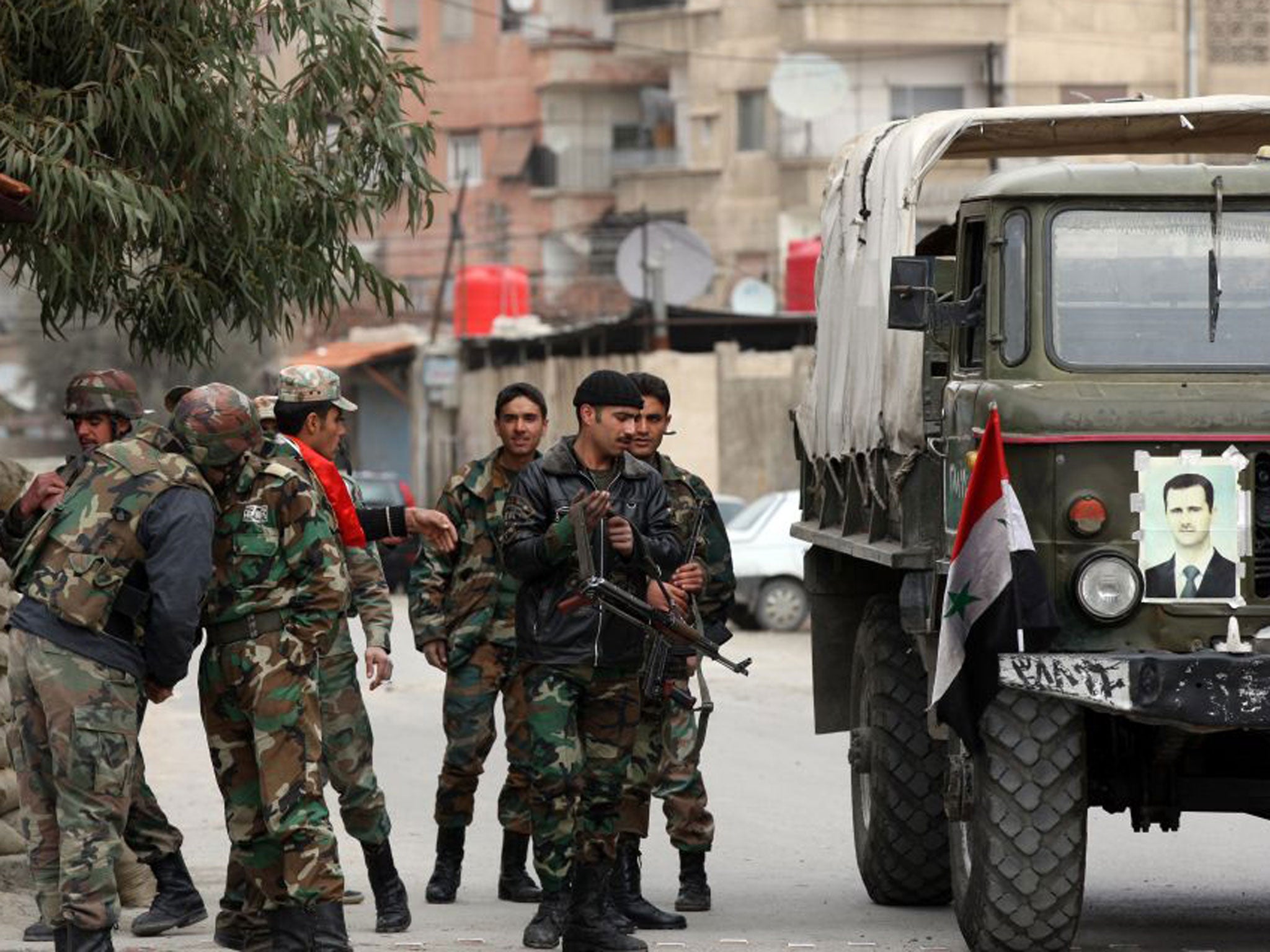Mobiles become weapons as tactics change in Syria’s new phoney war
Heavy casualties are reshaping the nature of the conflict. Robert Fisk reports from Damascus

A man was stopped at a government checkpoint on the highway north of Deraa and his mobile phone taken. The soldier found an SMS message which said: “I am in the hospital. The shooting has started.”
Assuming that the man was a rebel signalling his whereabouts to his comrades, the soldier arrested him. Another motorist, this time the checkpoint is manned by the rebels, and another mobile is demanded. The rebels found a photograph of his father on his phone. Unfortunately, his father is an officer in the government army – and is in full uniform. The motorist disappeared.
The war of the mobile has long been a staple of Iraq and Afghanistan. If Iraqi rebels or Taliban fighters found evidence at checkpoints that a mobile had been used even to dial the number of a Western organisation, the motorist was usually executed. Now the same frightening war has begun in Syria. It is the grim circuit through which the kidnap demand is made. Not long ago, the nephew of a senior Syrian official was kidnapped. The boy came on the family phone. They are beating me, he said. Please tell my uncle to stop appearing on television. The uncle obliged.
The entire Syrian war is changing. The tactics of both sides are fitting into the realisation that this bloodbath is going to last far longer than either they or the think-tank mountebanks in the West could have predicted. Syrian writers very close to the military – but who also meet rebels commanders – are the sources for this new picture of the Syrian conflict, whose fatalities may have reached 50,000 or 60,000 or 70,000. Death, or rather the scarcity of those ready to confront the final sacrifice, has shaped this new war.
It is no secret that the Assad army cannot afford to lose more men. While disloyalty is now far rarer than in the early days of the uprising, each soldier’s death leaves a gap hard to fill. Even if more troops can be found – and draft avoidance is now a science – an untrained recruit is no match for a man who has spent months under fire. So Syrian generals are turning to specially trained individual units of only 60 men in operations that would last year have involved whole battalions.
Frequently, soldiers are finding themselves confronted not by the Free Syrian Army – supposedly secular and thus Nato’s favourite militia – but by much more efficient Islamist fighters from Jabhat al-Nusra and other groups with advanced weapons, also often operating with only 50 or 60 fighters.
Like the Americans in Iraq the Syrian army finds itself constantly “capturing” the same areas it has seized from rebels in the past. The Damascus suburb of Douma, for example, has been “won” back from rebel forces three times over the past 18 months. “But the army eventually has to leave – and the rebels are back within a month,” a former Special Forces officer says. “In the past, the ‘Free Army’ made what they called ‘tactical withdrawals’. Not any more. The jihadists are in there now and they have come here to die.”
For many months, the Damascus authorities were content to place checkpoints around those Damascus suburbs which had been “lost” to the armed rebellion. The Free Syrian Army went along with this. A status quo of rotting sandbags and weeds formed the scenario of an unofficial ceasefire. But then three months ago, rebel forces in Harasta staged an attack on all the surrounding checkpoints and killed every government soldier manning them. This is savage punishment for a government army already overstretched in holding the highway from Damascus north to Homs.
For ever since the military decided to adopt the “tree” system of defence – holding the towns and main roads while giving the countryside up to the rebels – it has confronted the same problems that the Soviet army faced in Afghanistan: the country is simply too big to keep the highways open.
The government army long ago worked out why Islamist and al-Qa’ida forces have based themselves in Idlib province. Back in 2005, the CIA used to refer to the “al-Qa’ida triangle” in Idlib from which fighters were regularly transferred from Syrian territory into Iraq to fight the Americans. The Idlib triangle is now the most securely held of the Islamist rebel areas, because al-Qa’ida know it well. The CIA would call that “blowback”.
Yet dark humour can pervade any battlefield. In Harasta a few days ago, government troops were fighting with rebels between two rooms of the same building. One of the rebels shouted: “If you are Sunnis from Idlib, come and join us.” A government soldier shouted back a nasty insult about the man’s mother. “I didn’t mention your mother,” came the reply. “So leave my mother out of this!”
Subscribe to Independent Premium to bookmark this article
Want to bookmark your favourite articles and stories to read or reference later? Start your Independent Premium subscription today.

Join our commenting forum
Join thought-provoking conversations, follow other Independent readers and see their replies